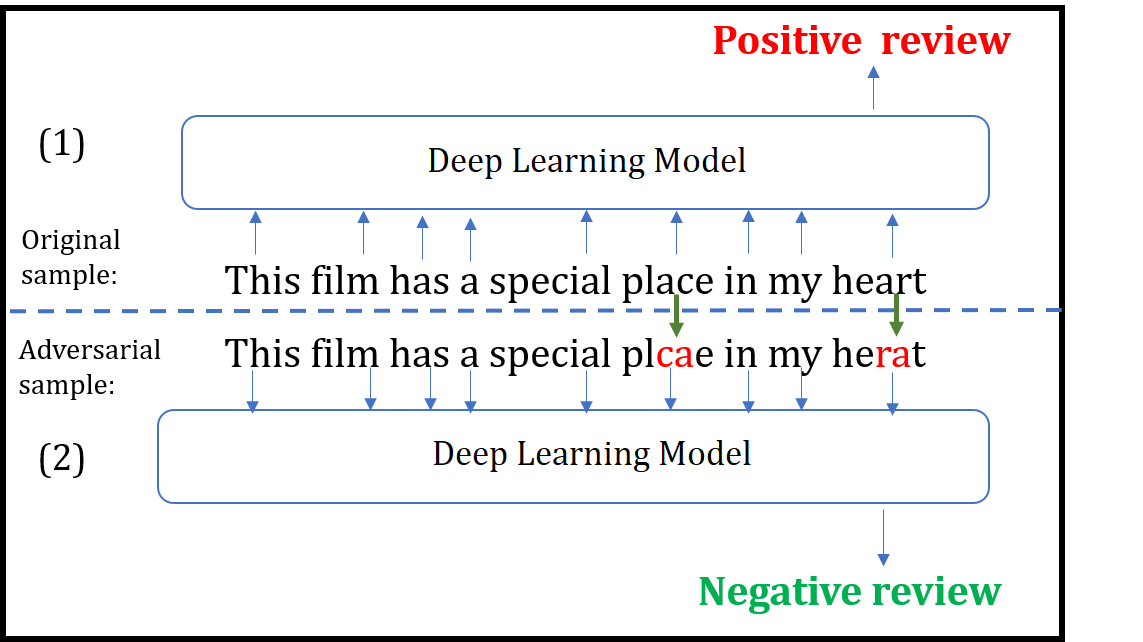Masking based Adversarial Text Generation
01 Oct 2018Title: Black-box Generation of Adversarial Text Sequences to Fool Deep Learning Classifiers

Paper Arxiv / Github
Its shorter version was Published @ 2018 IEEE Security and Privacy Workshops (SPW), co-located with the 39th IEEE Symposium on Security and Privacy.
GitHub: https://github.com/QData/deepWordBug
TalkSlide: URL
Abstract
Although various techniques have been proposed to generate adversarial samples for white-box attacks on text, little attention has been paid to a black-box attack, which is a more realistic scenario. In this paper, we present a novel algorithm, DeepWordBug, to effectively generate small text perturbations in a black-box setting that forces a deep-learning classifier to misclassify a text input. We develop novel scoring strategies to find the most important words to modify such that the deep classifier makes a wrong prediction. Simple character-level transformations are applied to the highest-ranked words in order to minimize the edit distance of the perturbation. We evaluated DeepWordBug on two real-world text datasets: Enron spam emails and IMDB movie reviews. Our experimental results indicate that DeepWordBug can reduce the classification accuracy from 99% to around 40% on Enron data and from 87% to about 26% on IMDB. Also, our experimental results strongly demonstrate that the generated adversarial sequences from a deep-learning model can similarly evade other deep models.
Citations
@INPROCEEDINGS{JiDeepWordBug18,
author={J. Gao and J. Lanchantin and M. L. Soffa and Y. Qi},
booktitle={2018 IEEE Security and Privacy Workshops (SPW)},
title={Black-Box Generation of Adversarial Text Sequences to Evade Deep Learning Classifiers},
year={2018},
pages={50-56},
keywords={learning (artificial intelligence);pattern classification;program debugging;text analysis;deep learning classifiers;character-level transformations;IMDB movie reviews;Enron spam emails;real-world text datasets;scoring strategies;text input;text perturbations;DeepWordBug;black-box attack;adversarial text sequences;black-box generation;Perturbation methods;Machine learning;Task analysis;Recurrent neural networks;Prediction algorithms;Sentiment analysis;adversarial samples;black box attack;text classification;misclassification;word embedding;deep learning},
doi={10.1109/SPW.2018.00016},
month={May},}
Support or Contact
Having trouble with our tools? Please contact Yanjun Qi and we’ll help you sort it out.